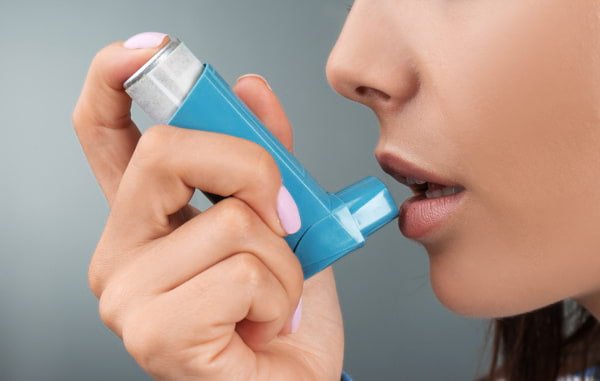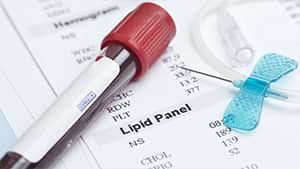High cholesterol LDL: what does that mean and how to reduce it ?
A high cholesterol (LDL) level means the body can no longer regulate the total cholesterol level, which results in a buildup of lipids in the arteries. This gradual deposit of fat can lead to the formation of atheromatous plaques, which can have serious health consequences. Blood circulation is disturbed, which increases the risk of high blood pressure. Ruptured atheromatous plaque can also lead to a myocardial infarction, stroke, or arteritis obliterans of the lower limbs (PADI).

What is a high chorelsterol level ?
An LDL cholesterol level is generally considered normal when it is lower than 100 mg/dL in adults. However, these reference values may vary depending on the medical laboratory and many parameters including gender, age and medical history. To find out more, you should seek advice from your doctor.
Why is it called "bad cholesterol"
While LDL is one of the body’s carriers of cholesterol, there are others including HDL cholesterol. The latter is able to capture excess cholesterol in the body and then transport it to the liver for elimination. The transport function of HDL cholesterol is all the more important as excess cholesterol in the blood constitutes a cardiovascular risk factor. It is for this reason that HDL is referred to as “good cholesterol” while LDL is referred to as “bad “.
Please take advice from your doctor or professional medical for any further informations, here we only bring you general informations order. That could not be taken as a medical advices or a prescription.
Symptoms of a high cholesterol level
Usually that doesn’t trigger obvious symptoms. It is a “silent” disorder just like high blood pressure which does not give any warning signs. Most people find out about the problem after having a blood test in addition to a routine physical exam. They often learn that they also have high blood pressure.
You may observe signs that could indicate complications associated with high cholesterol. These include angina and pain in the calves caused by the narrowing of the arteries that carry blood to the legs. The main complications are heart disease and stroke.
So when to have your cholesterol tested?
National Cholesterol Education Program recommends to have a cholesterol test from the age of 20 and every 5 years up to age 50 and then every 3 years beyond. People who are at risk for heart attack or heart disease or who have a family history of either should be checked more often
How to reduce high cholesterol (LDL) level ?
Reduce overall fat intake.
The overall fat intake for a person should be no more than 30-35% of total calories. Indeed, fats, especially saturated fatty acids contribute to an increase in “bad” cholesterol. They are mostly provided by:
- Fats of animal origin (meat, eggs, cheese, whole milk, butter ).
- Pastries and biscuits.
- Certain processed products, ready meals, etc.
privilege unsaturated fat.
The overall fat intake for a person should be no more than 30-35% of total calories. Indeed, fats, especially saturated fatty acids contribute to an increase in “bad” cholesterol. They are mostly provided by:
- Vegetable oils (sunflower, corn and rapeseed oils are rich in polyunsaturated oils, olive and peanut oils mainly contain monounsaturated oils)
- Margarines obtained from these oils.
- Dried oleaginous fruits.
- Fatty fish from cold seas (which provide very polyunsaturated fatty acids).
Eat fruits and vegetables.
- Privilege fresh fruits and vegetables (seasonal, or canned, or possibly frozen).
- Eat at least one serving of green vegetables and one serving of raw vegetables each day, and at least two fresh fruits.
Stop smoking and moderate alcohol consumption.
- Quitting smoking, drinking alcohol moderately … are all tips that help improving your overall lifestyle, and therefore maintain a low or acceptable cholesterol level.
Do sport.
- Exercise regularly. For example, you can do brisk walking, cycling, swimming, soft sports that require little investment. If you are active, why not take advantage of the trip to work to do sport? Forget the elevator, get off two bus or metro stations before your usual stop … So many tips that allow you to stay in motion at least 30 minutes a day!
- If you are in overweight it’s advised to lose even few kilos, it’s always beneficial for the blood constants and sometime that’s enough to correct cholesterol excess.
Beware salt.
- Remove the salt as often as you can, and avoid the regular consumption of foods high in salt (cold meats, cured meats).
Read product labels.
- Labels provide valuable informations about the type and amount of fat in foods sold in stores. By deciphering them well, it is possible to half your daily fat intake.
Watch out your arterial pressure.
- High blood pressure, increases the risk of damages to the heart (heart attack and heart failure). Thus, it is important to monitor your blood pressure regularly.





